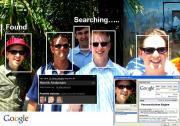|
|
|
|

|
Google Mapping the Brain, Plotting Face Recognition, Analyst Asserts
Published Mar 20, 2014
|
Google's single, long-standing public objective is to "organize the world's information and make it universally accessible and useful," a credo scarcely less well-known than "Don't be evil."
Yet the company is going about that work in a vast number of disparate but interconnected ways, according to IDC Strategic Advisory Service boss Scott Strawn, who spoke at IDC Directions 2014 Wednesday afternoon in Boston.
The computing titan, which saw more than $55 billion in revenues in 2013, is pouring money into everything from robotics to artificial intelligence to the Internet of Things to augmented and virtual reality, Strawn said.
"Google is positioning itself not only to facilitate these changes, but to profit from them as well," he said.
The fact that about $37.5 billion of those revenues came from search advertising affects a lot of the company's decision-making."Google is really ... concerned about being in front of as many people as possible," he said.
To that end, the company's early release of Google Glass - seemingly before the groundbreaking wearable device was ready for prime-time - makes more sense, according to Strawn, as the wearables market is set to be the next big thing in personal computing. Getting Glass into the hands of developers well in advance of its general uptake gives as much opportunity as possible for new innovations. What's more, he added, Glass' basic technological capabilities will grow over time.
"Facial recognition is not allowed on Google Glass - that will change," Strawn confidently predicted.
Google also wants into the ISP market, he said, citing Google Fiber and Project Loon - a speculative effort to provide wide-area wireless Internet access to underserved areas via transmitters suspended from balloons - as examples.
Probably the company's most ambitious project to date, however, is its ongoing effort to completely map the structures of the brain.
"What they are doing is taking information from brain-scanning technologies to replicate the functionality of the human brain in machines," Strawn said.
And while the time frame on this project is a matter of decades, many subsidiary accomplishments could result, he added, citing improvements to natural language processing and computer vision as examples.
Those advances also play into another of Google's main areas of focus - robotics. The company made a mass purchase of eight robotics companies over the course of about a week in December 2013.
Strawn said that Google's well-known self-driving car projects are already on the road, and that this is but one of a huge number of different uses for the company's rapidly growing resources in the field.
"The applications of [robotics] are really too long to list," he said.
So, too, Google's ambitions for the future.
Posted by
VMD - [Virtual Marketing Department]
|
|
|

